The Supreme Court is a bastion of unearned privilege
The elite school pipeline is affirmative action, too

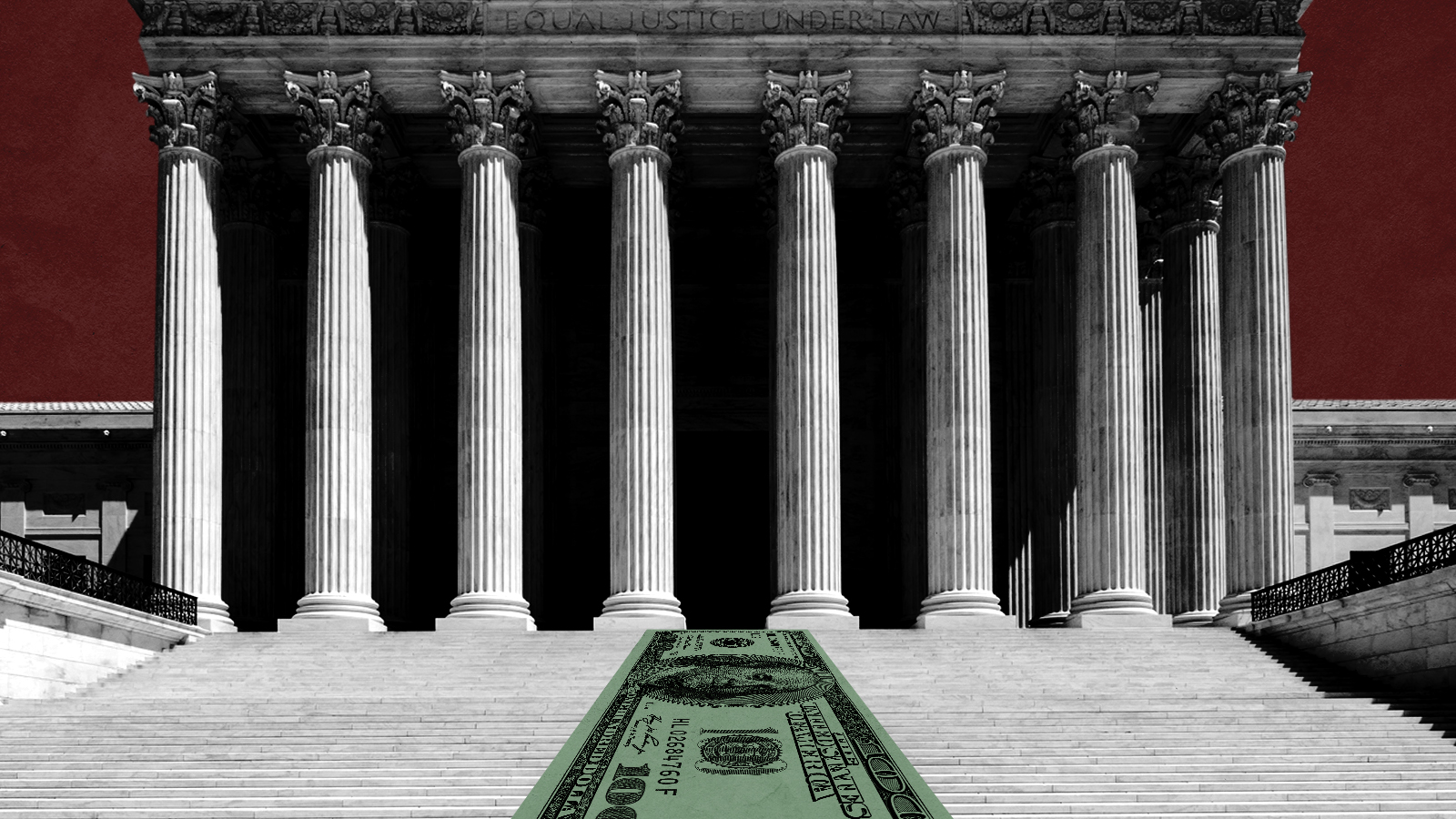
A free daily email with the biggest news stories of the day – and the best features from TheWeek.com
You are now subscribed
Your newsletter sign-up was successful
The Supreme Court is set to hear a pair of cases about racial preference in college admissions, or "affirmative action." As Nicholas Lemann writes at The New Yorker, it's highly likely that the court will ban the practice as part of their general assault on civil rights.
One case, in classic right-wing troll fashion, is suing Harvard for discriminating against Asian-Americans' applications. Now, as Jay Kaspian Kang points out at The New York Times, there actually is quite strong evidence this has happened. That's indefensible and should be rectified immediately.
But it is ludicrously unfair to use that alleged fact to abolish affirmative action entirely. Elites enjoy their own system of affirmative action that is a hundred times more powerful than the halting and halfhearted efforts at prestigious universities to make their student bodies somewhat more diverse. Wealthy conservatives want to make the system even more unfair than it already is through judicial rule-by-decree.
The Week
Escape your echo chamber. Get the facts behind the news, plus analysis from multiple perspectives.

Sign up for The Week's Free Newsletters
From our morning news briefing to a weekly Good News Newsletter, get the best of The Week delivered directly to your inbox.
From our morning news briefing to a weekly Good News Newsletter, get the best of The Week delivered directly to your inbox.
Just look at the Supreme Court itself. For most of the court's recent history, almost every justice has gone to Harvard or Yale for law school — the sole exception today is Amy Coney Barrett, who went to Notre Dame. Indeed, there are two justices, Brett Kavanaugh and Neil Gorsuch, who went to the same prep school. There are about 27,000 high schools in this country; it simply beggars belief to argue that of the nine "best" legal minds in the country, 22 percent of them just happened to come from the same one. Come on. (Also, if Kavanaugh's confirmation hearing was any guide, Georgetown Prep would seem to be a place where our future judicial overlords learn about utter moral debauchery and early-onset cirrhosis instead of Aristotle or whatever.)
Let's not be children about this. The pipeline from Georgetown Prep to Yale or Harvard Law to the federal bench is a system of privilege. High-status people use their money (Georgetown Prep's tuition is $60,000 a year, though there is some financial aid) and influence to place their family and friends into exclusive institutions where they more or less succeed automatically, even if you're — to pick a completely random example — a handsy beer-swilling moron. See also Jared Kushner, a titanic dullard who got to go to Harvard despite atrocious grades and test scores because his father made a strategic $2.5 million "donation."
Kavanaugh even had legacy preference at Yale because his grandfather went there (which he lied about under oath), and that was even more important in the 1980s than it is today. They don't make hypocrisy more egregious than this guy almost certainly ruling against race-based affirmative action.
It is obviously the case that without consistent pressure against it, the power of the rich will undermine the integrity of any supposedly "neutral" process. Base admission simply on test scores, and you run into the fact well-to-do parents can afford testing prep services, re-tests, tutors, and so forth (not to mention actual bribes to admission officers).
A free daily email with the biggest news stories of the day – and the best features from TheWeek.com
Base it on more nebulous criteria like essays, letters of recommendation, sports, or community service (as is now standard in most college admissions), and it's even easier for the rich to squirm in with expensive consultants and careful preparation. Indeed, as Malcolm Gladwell pointed out some years back, this style of application originated in a literal anti-Semitic conspiracy. Too many high-achieving Jews from working-class families were getting into the Ivy League in the early 20th century, so the WASP elite at the time had to invent some way to discriminate in a plausibly-deniable fashion.
The power of money shows even in affirmative action systems today. As Kang details, diversity initiatives in many schools have greatly increased the share of minority students, but have overwhelmingly selected from the wealthiest members of those groups.
Fundamentally, there is no way to avoid making a choice about what kind of student body a school wants, and hence establishing some kind of preferential system. Even if it were possible to measure academic ability with perfect accuracy (it isn't), making that the sole criterion for admission would entrench the privilege of the rich. A different system that ensures a supply of students from under-represented or lower-class backgrounds is simply a different choice — one that is a lot fairer than the current system of tests, application consultants, and straight-up bribery.
If I were in charge, I would do college admissions for a big national school through a demographically-adjusted lottery. Set up a reasonable test score threshold for applications, and then draw names such that the resulting class is as close to representative of the country as a whole as possible — including race, gender, income, and geography. That would be facially fair, less easy for the wealthy to cheat, and abolish the Byzantine nightmare of college applications today.
But in any case, in the likely event that the reactionary legal clerics who lord over this country decide to abolish affirmative action for college admissions, don't be fooled. They'll just be further insulating the power of a narrow elite clique against any kind of challenge.
Ryan Cooper is a national correspondent at TheWeek.com. His work has appeared in the Washington Monthly, The New Republic, and the Washington Post.
-
 Labor secretary’s husband barred amid assault probe
Labor secretary’s husband barred amid assault probeSpeed Read Shawn DeRemer, the husband of Labor Secretary Lori Chavez-DeRemer, has been accused of sexual assault
-
 Trump touts pledges at 1st Board of Peace meeting
Trump touts pledges at 1st Board of Peace meetingSpeed Read At the inaugural meeting, the president announced nine countries have agreed to pledge a combined $7 billion for a Gaza relief package
-
 Britain’s ex-Prince Andrew arrested over Epstein ties
Britain’s ex-Prince Andrew arrested over Epstein tiesSpeed Read The younger brother of King Charles III has not yet been charged
-
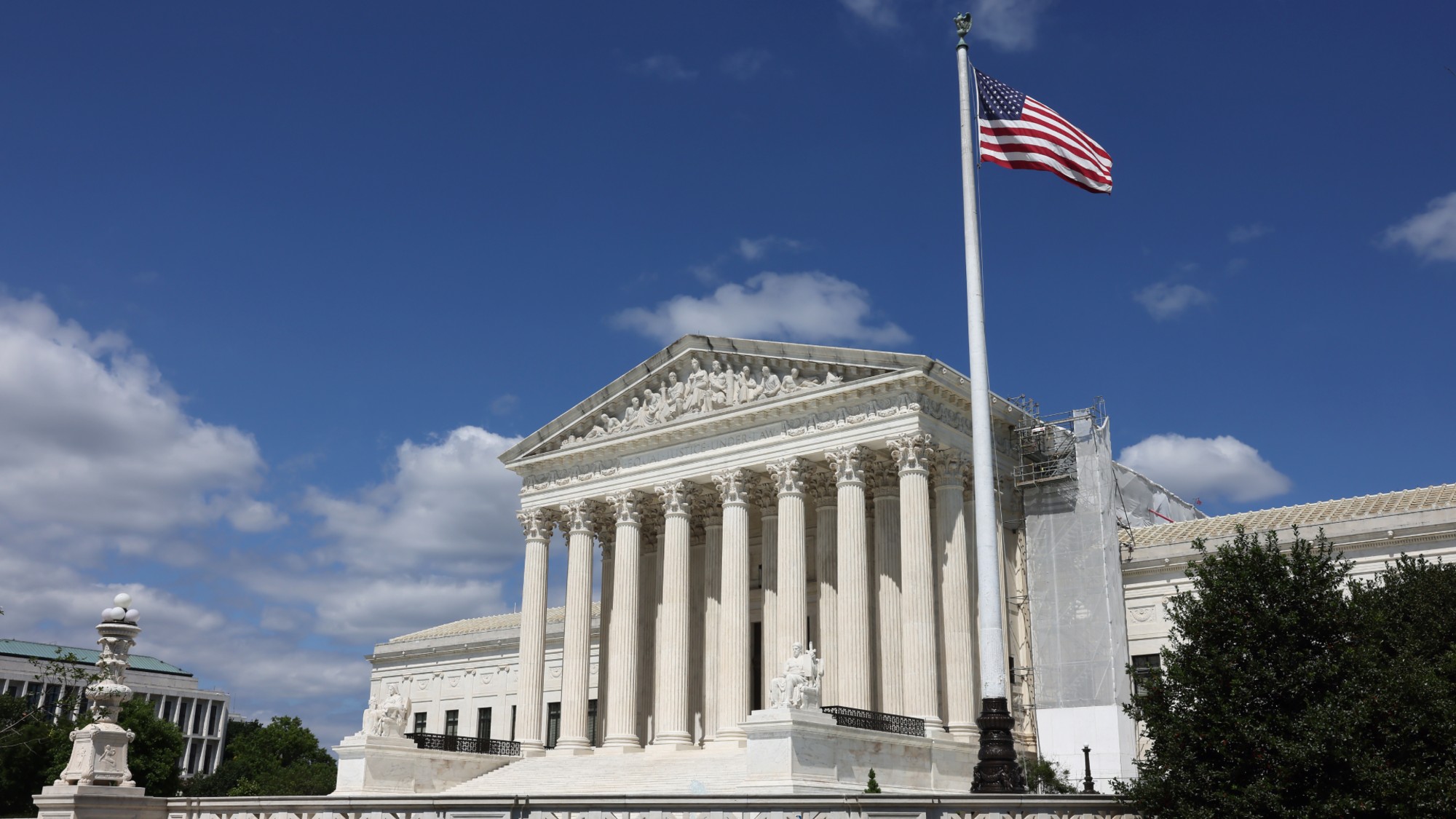 How far does religious freedom go in prison? The Supreme Court will decide.
How far does religious freedom go in prison? The Supreme Court will decide.The Explainer The plaintiff was allegedly forced to cut his hair, which he kept long for religious reasons
-
 The Supreme Court case that could forge a new path to sue the FBI
The Supreme Court case that could forge a new path to sue the FBIThe Explainer The case arose after the FBI admitted to raiding the wrong house in 2017
-
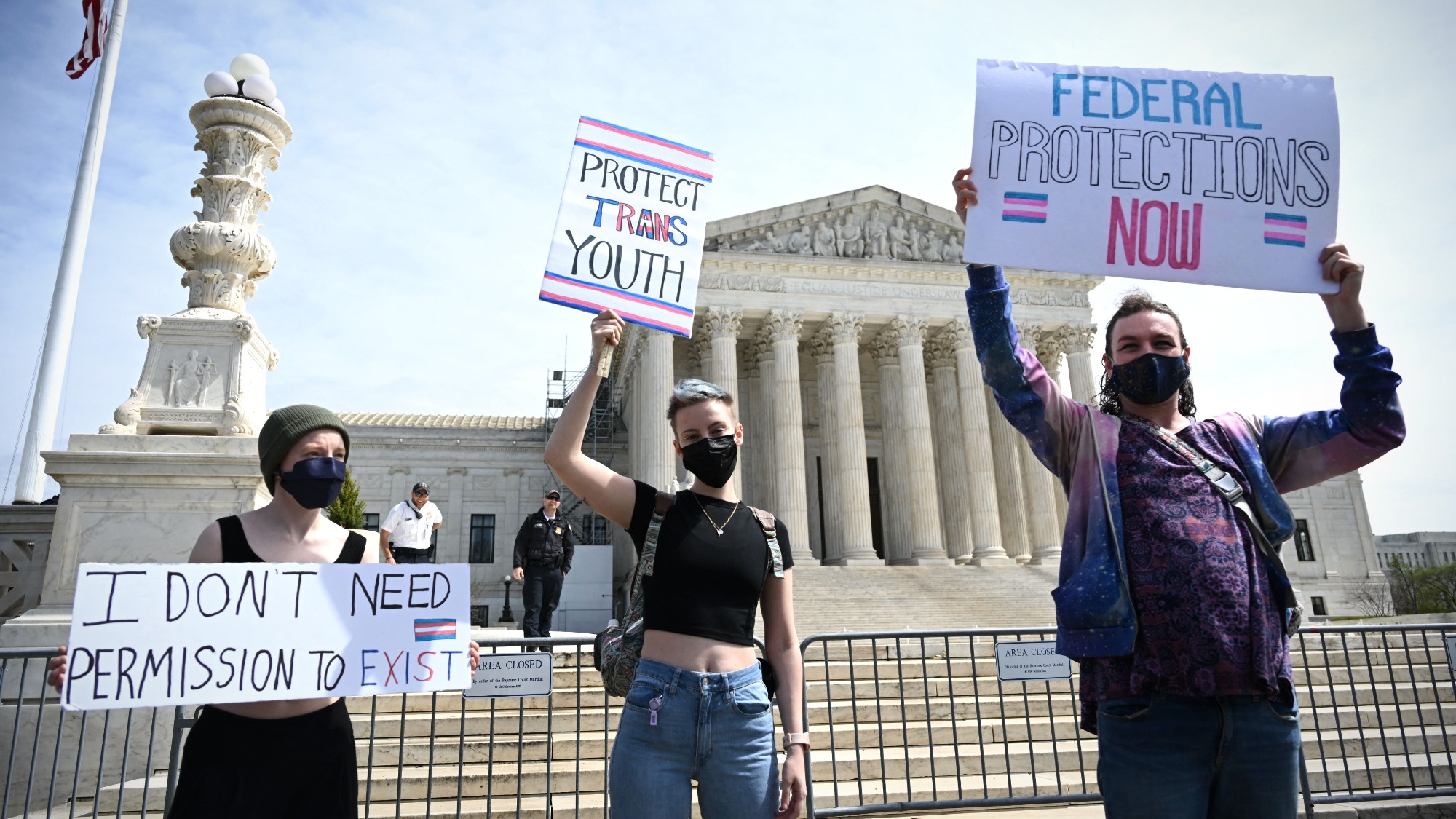 Supreme Court to weigh transgender care limits
Supreme Court to weigh transgender care limitsSpeed Read The case challenges a Tennessee law restricting care for trans minors
-
 Supreme Court wary of state social media regulations
Supreme Court wary of state social media regulationsSpeed Read A majority of justices appeared skeptical that Texas and Florida were lawfully protecting the free speech rights of users
-
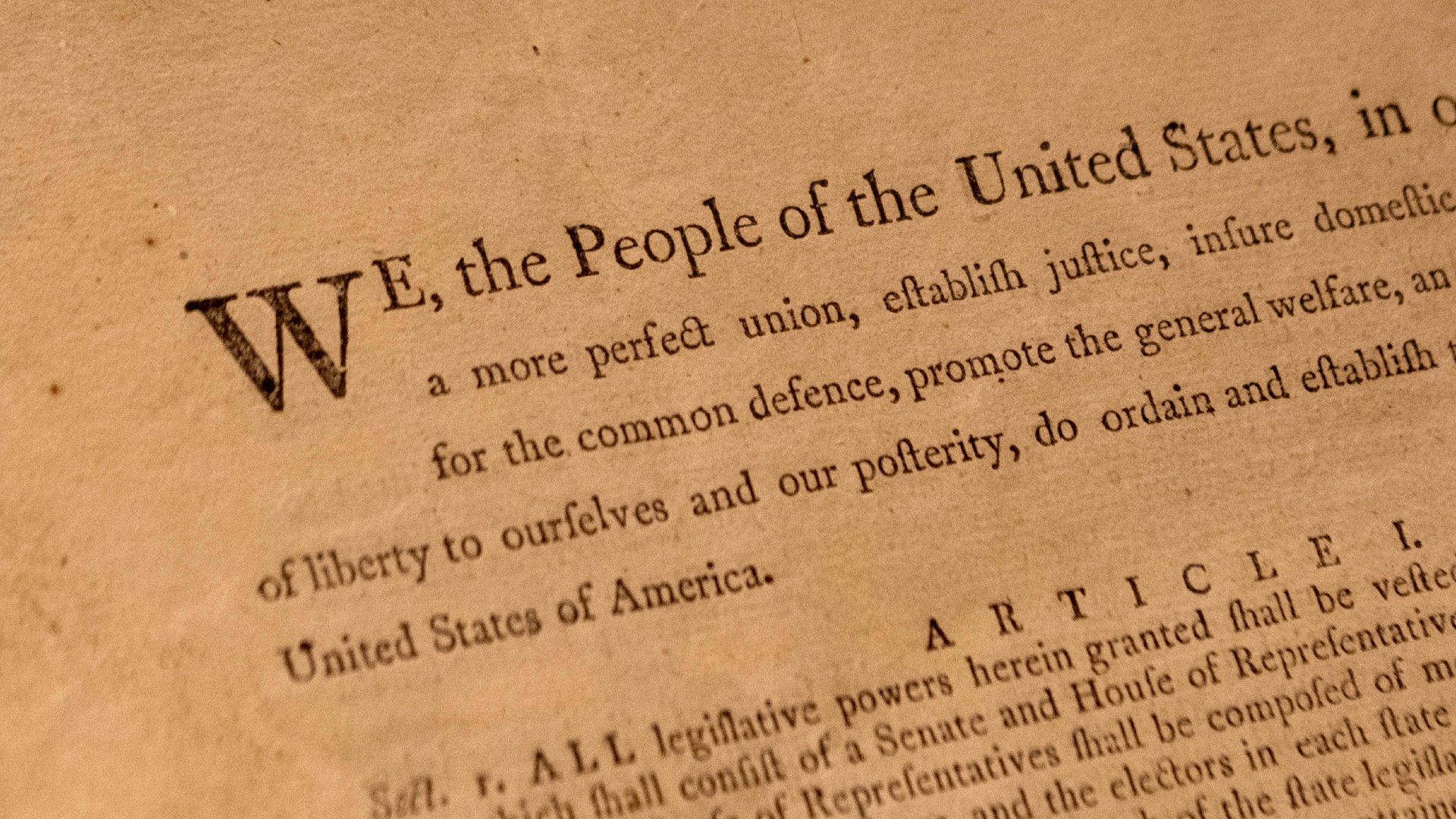 The pros and cons of a written constitution
The pros and cons of a written constitutionPros and Cons Clarity no substitute for flexibility, say defenders of Britain's unwritten rulebook
-
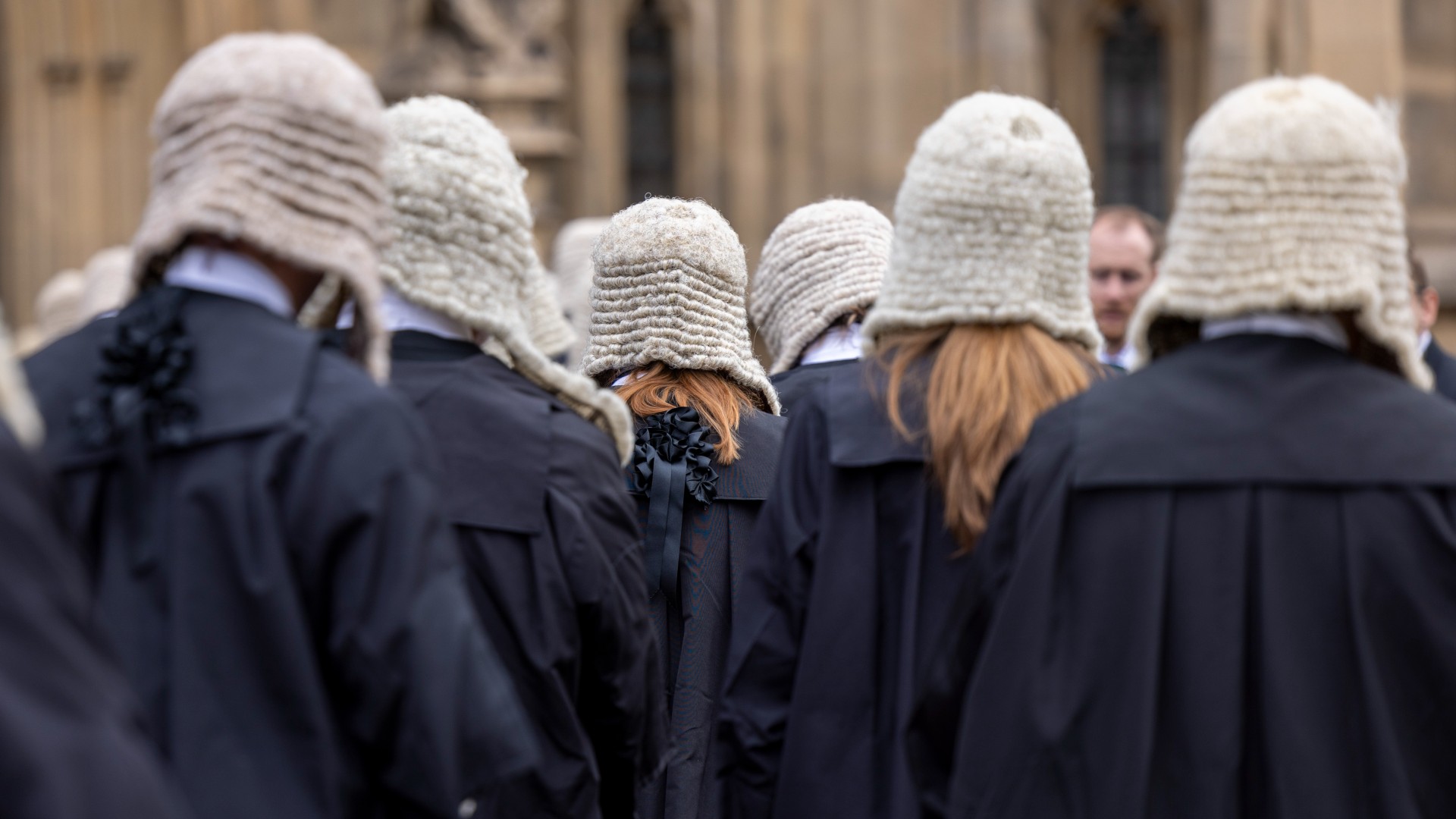 Judges allowed to use ChatGPT to write legal rulings
Judges allowed to use ChatGPT to write legal rulingsSpeed Read New guidance says AI useful for summarising text but must not be used to conduct research or legal analysis
-
 Pros and cons of the Rwanda deportation policy
Pros and cons of the Rwanda deportation policyPros and Cons Supporters claim it acts as a deterrent but others say it is illegal and not value for money
-
 Is the Comstock Act back from the dead?
Is the Comstock Act back from the dead?Speed Read How a 19th-century law may end access to the abortion pill
